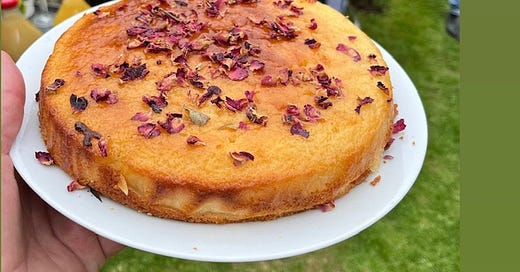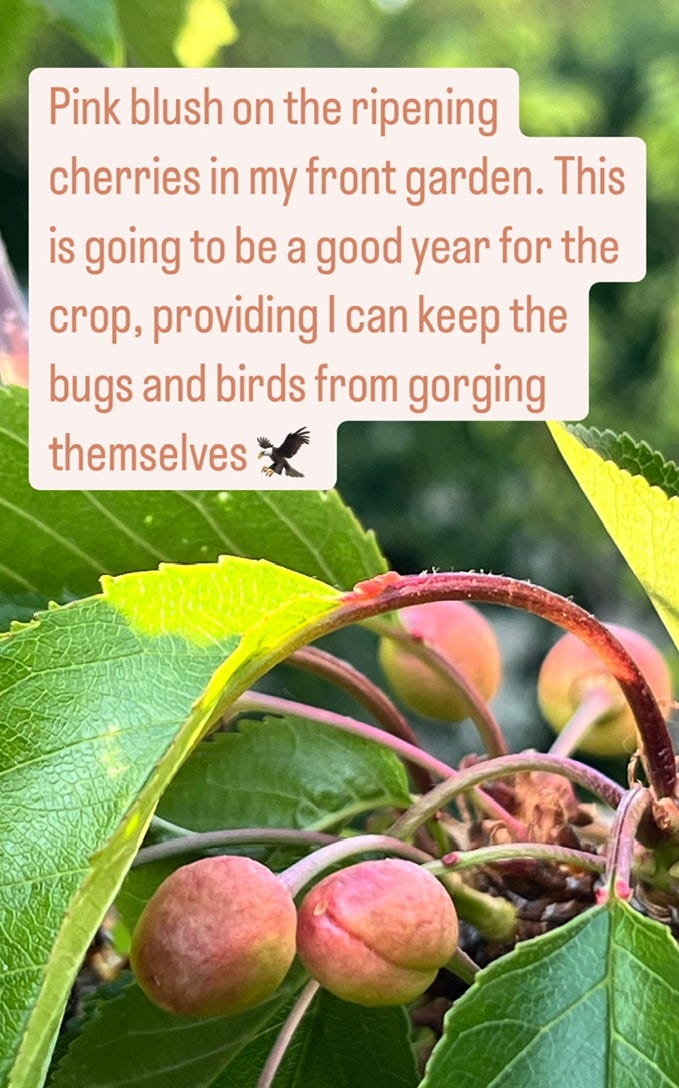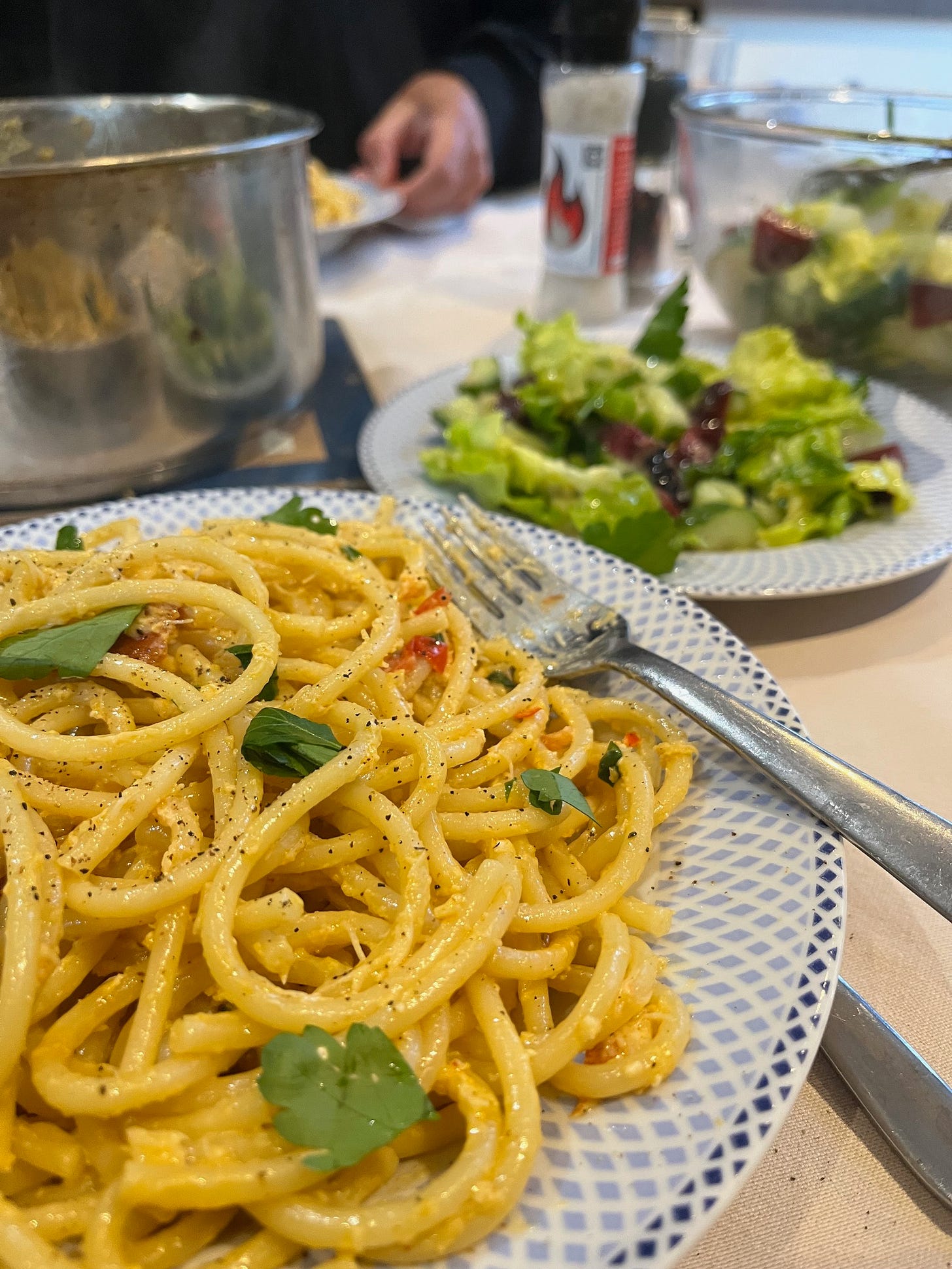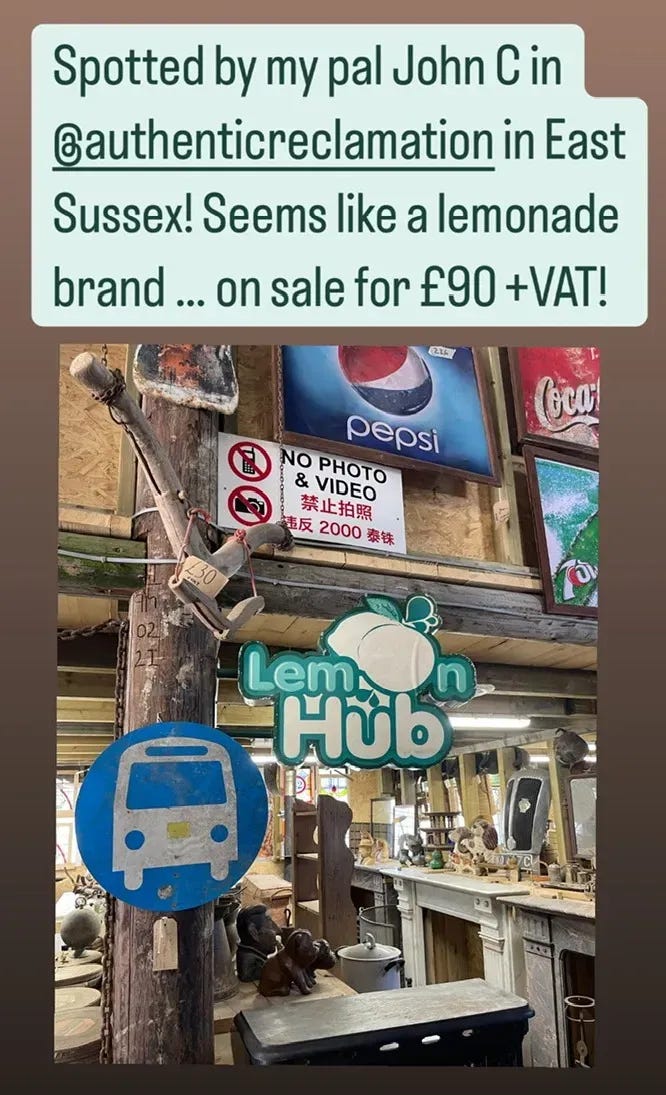Hello Lemonistas,
Welcome to the latest edition of The Lemon Grove newsletter.
This week we have a condensed chat with north London-based chef, teacher and spice expert Ren Patel from Ren’s Pantry, a company in which Ren combines teaching people about how to buy, store and use better quality spices in their cooking, while running a fast-growing business selling spices to top restaurants across London and to wholesalers and delis.
I met Ren at a tasting day for the Guild of Fine Food where her palate and knowledge of flavours were of great use for our team ranking Great Taste awards.
Here is a short podcast I recorded in her cook school, while we cooked up several dishes using her spices.
Ren kindly gifted the class to me, while I bought the Masala tin and spices, which you’ll see in the photos below.
The following is a quick peek into one of Ren’s classes, recorded in her teaching kitchen, where I took part in a class with two other spice fans.
Ren and I will record a full podcast soon, with lots more tips and ideas on how to buy and use quality spices.
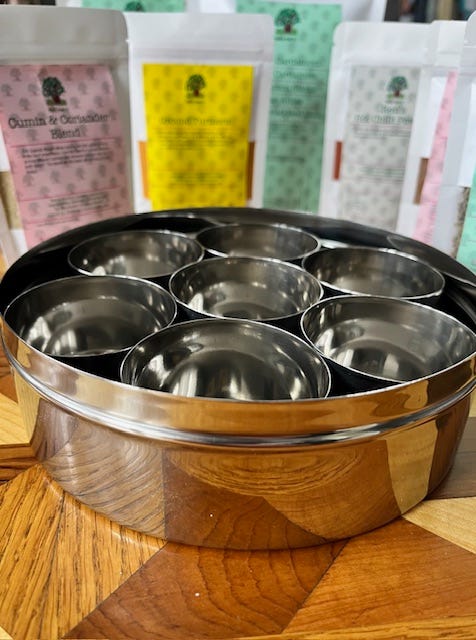
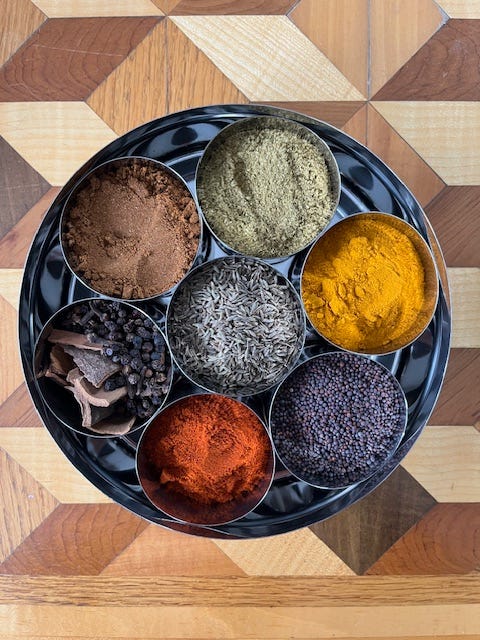
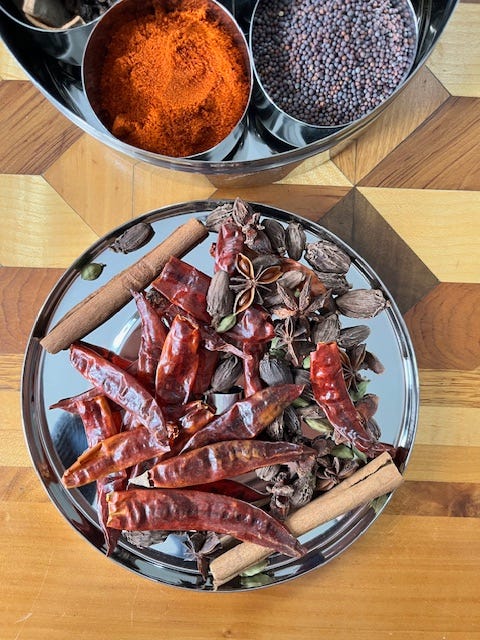
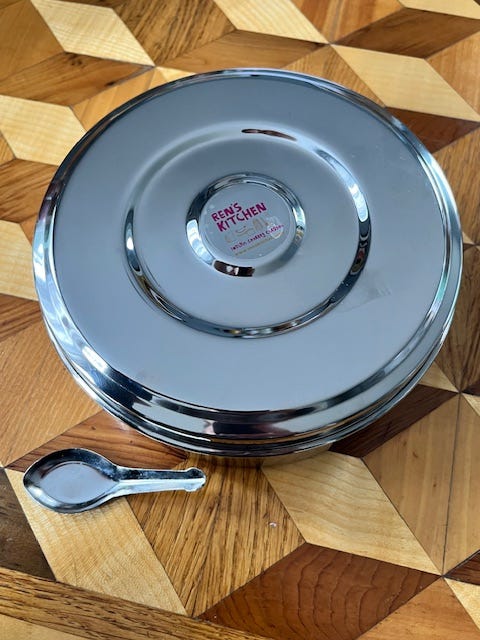
Masala tins, also known as spice boxes or ‘masala dabbas’, are an essential fixture in Indian kitchens and are important both culturally and gastronomically. Like mine, they are typically round, stainless steel containers housing seven or more smaller compartments, each filled with frequently used spices such as cumin, turmeric, coriander, mustard seeds, red chilli powder, and garam masala. Their importance in Indian cookery lies not only in practicality but also in their role in preserving the traditional art of seasoning food with precision. However, as Ren pointed out, don’t be too precious with the spoon - if a little cumin gets mixed up with chilli powder, that’s ok. It has complexity and uniqueness to your dish.
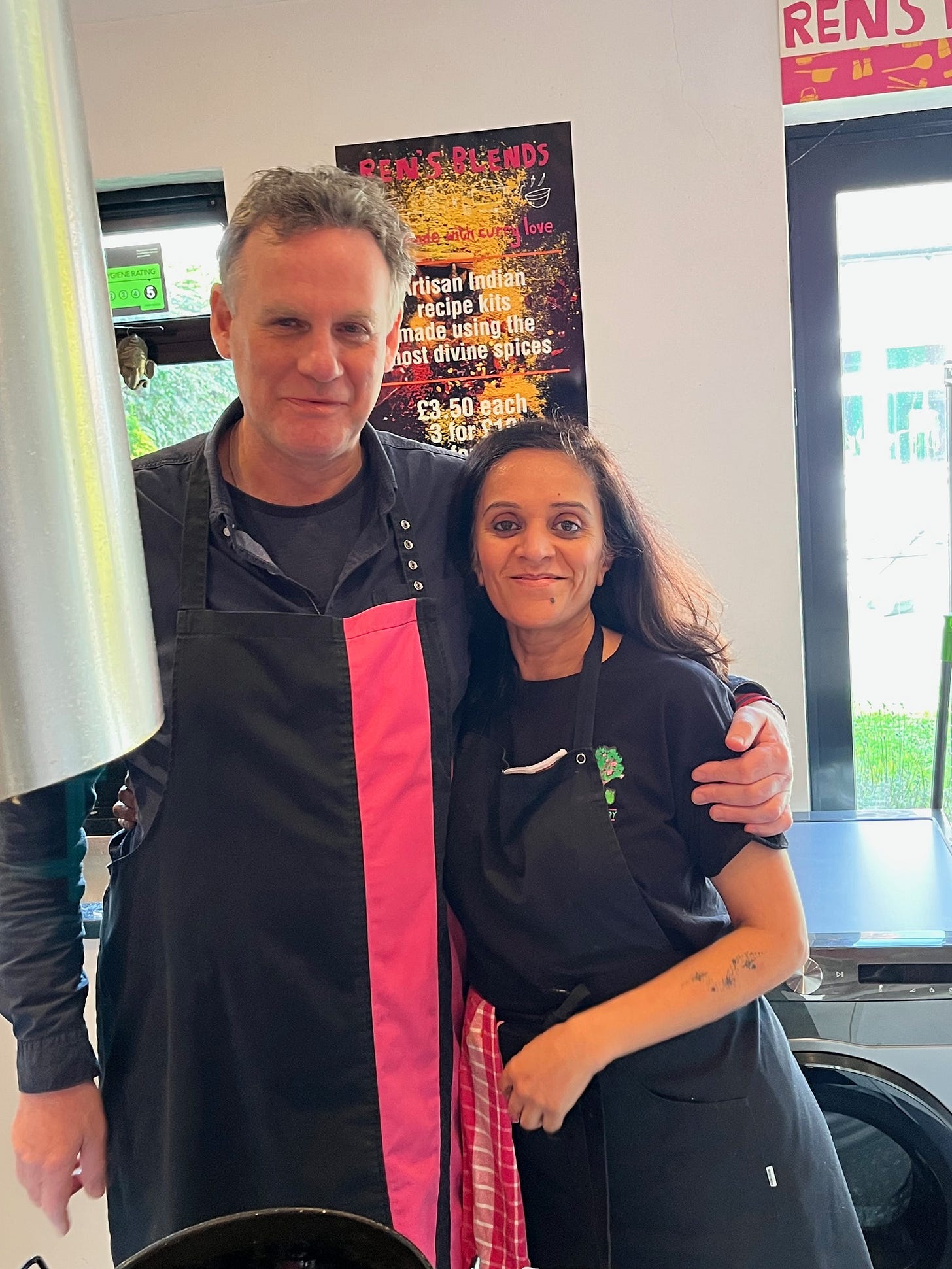
Indian cuisine can be defined by its complex layering of flavours, achieved through the careful use of spices. A masala tin provides immediate access to core ingredients, allowing the cook to build flavour intuitively, often without measuring tools, relying instead on memory, experience, and instinct. One can say that the tin acts as a culinary compass, guiding the cooking process and ensuring consistency.
Beyond keeping your spices organised and to hand, masala tins serve a symbolic role, often passed down through generations, imbued with familial memory and cultural heritage. It is more than a storage device; it represents continuity and tradition in Indian households. In busy modern kitchens, the masala tin remains a touchstone of identity and a reminder of the depth, richness, and heritage of Indian cuisine. I wonder who will inherit my masala tin!
Connect with Ren’s Pantry:
Website: Ren’s Pantry
Instagram: Ren’s Pantry on Instagram
Cooking lessons: Indian Cookery Classes
The Lemon Grove on Instagram
lemongrovepics
Here are some recent Posts and Stories published on our Instagram account lemongrovepics. Please follow, and I’ll follow back.
Tonbridge Food Festival
May 24 & 25, Tonbridge Castle
I’m looking forward to returning to the stage this Sunday, May 25, at this bustling and busy food festival in west Kent.
On Sunday, 25 May I’ll be cooking with local and seasonal ingredients and sharing food prep, tasting and pairing tips with the crowd; interviewing local producers and chefs from among the many stalls on site. As host and cook, I’ll be on stage from 11am - 6pm so do come down and say hello, take part in the quiz and maybe get interviewed on stage.
Entrance is free. Click here for more information. Tonbridge Castle, TN9 1BG.
The Lemon Grove's Substack newsletter
Give the gift of a 'The Lemon Grove' Substack newsletter to a friend, family member or yourself! Organise your gift through this link below … Thank you.
If you enjoyed this post, please click on the little ❤️ below ⬇️.
Email: hello@thelemongrove.net
Facebook: LemonGroveSocial
Instagram: LemonGrovePics

